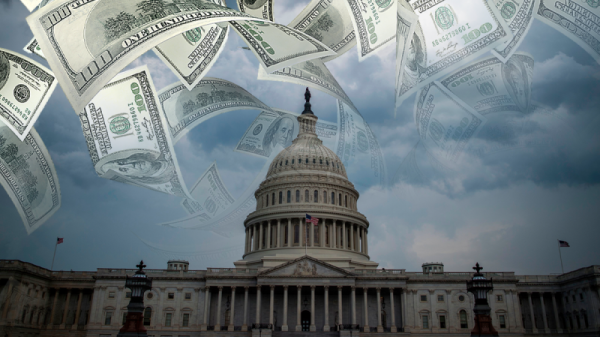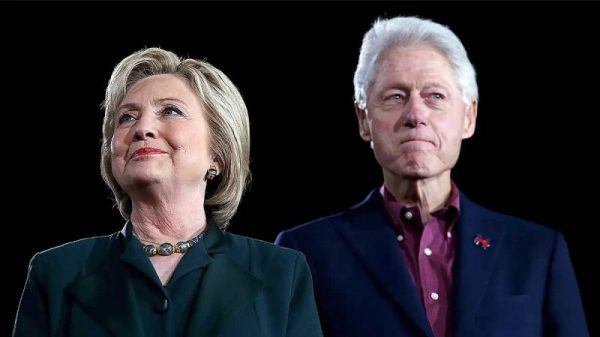D.C. residents may be able to clear their records of certain marijuana offenses after President Biden announced Friday that he will pardon those convicted of simple use and possession on certain federal lands and the nation’s capital.
It was not immediately clear how many District residents this would affect, but the announcement follows Biden’s proclamation last year pardoning thousands of people convicted of marijuana possession under federal law as part of a broader effort to rectify what he has said are unjustified disparities in drug sentencing. No one was released from prison after that 2022 announcement because, White House officials said at the time, there is no one currently in federal prison solely for simple possession of cannabis.
The announcement on Friday extends beyond covering only simple possession charges and now applies to attempted simple possession under both federal and District laws as well as simple possession or use on federal lands. It also extends to people who have not yet been charged with or convicted of federal or D.C. marijuana offenses. Biden urged governors across the nation to follow his lead with regard to state offenses.
The White House did not respond to requests for additional information on the scope of the president’s order. Biden also commuted the sentences of 11 nonviolent drug offenders Friday.
“Convictions for simple possession of marijuana have imposed needless barriers to employment, housing, and educational opportunities,” Biden said in a statement.
Because the District lacks the autonomy of a state, the U.S. attorney’s office, rather than the District’s local prosecutor, prosecutes local marijuana laws, and only the president has the power to pardon people convicted of D.C. law violations.
Representatives for Mayor Muriel E. Bowser (D), the U.S. attorney’s office in D.C. and D.C. Attorney General Brian L. Schwalb (D) did not immediately respond Friday to requests for comment.
For Adam Eidinger, a longtime cannabis activist and co-founder of DC Marijuana Justice, which worked to legalize the drug in the city, Biden’s action did not go far enough. He criticized these pardons as a “nothingburger” and said Biden should be taking more substantial steps toward reform that releases people from behind bars.
“This is once again the Biden administration attempting to look like they are doing something by doing very little,” said Eidinger, who organized a protest outside the White House last year to demand that Biden use his executive authority to release people incarcerated on nonviolent marijuana-related convictions.
Similarly, Sarah Gersten, the executive director of the Last Prisoner Project, a nonprofit working on cannabis criminal justice reform that has lobbied the White House on this issue, said she was “disappointed” with Biden’s announcement.
Her organization has been urging Biden to grant clemency for anyone incarcerated federally for cannabis — an action that she said would help remedy the harms of “really punitive drug laws that of course disproportionately impacted communities of color.”
Gersten estimated that more than 3,000 people are in federal prison because of marijuana-related offenses, citing data from a 2021 report from Recidiviz, a nonprofit that uses technology and data to build tools for criminal justice reform.
“People that have been impacted by these unjust laws should have relief,” Gersten said.
The number of people charged in federal court for simple possession of marijuana has fallen swiftly in recent years, as policymakers and Americans more broadly have embraced more lenient views about the drug.
There were only 145 people sentenced solely on federal simple possession charges in 2021, down from 2,172 in 2014, according to a January report from the U.S. Sentencing Commission. More than 80 percent of those charges emanated from a single district in Arizona, the report found.
A growing number of states and cities, including D.C., have reduced or eliminated penalties for marijuana possession over the past decade. Biden has called on governors to issue blanket pardons for state-level marijuana possession offenses, which make up the vast majority of cases and convictions nationwide.
As of January 2022, no one who had been sentenced solely for simple possession of marijuana remained in federal custody, according to the report.
“These marijuana pardons will help thousands of people by making it easier for them to find a job, buy a home, and get an education,” Vice President Harris said in a statement. “We must continue to change our nation’s approach to marijuana and reform the criminal justice system. As I have declared many times before, no one should be in prison simply for smoking weed.”
D.C. residents may be able to clear their records of certain marijuana offenses after President Biden announced Friday that he will pardon those convicted of simple use and possession on certain federal lands and the nation’s capital.
It was not immediately clear how many District residents this would affect, but the announcement follows Biden’s proclamation last year pardoning thousands of people convicted of marijuana possession under federal law as part of a broader effort to rectify what he has said are unjustified disparities in drug sentencing. No one was released from prison after that 2022 announcement because, White House officials said at the time, there is no one currently in federal prison solely for simple possession of cannabis.
The announcement on Friday extends beyond covering only simple possession charges and now applies to attempted simple possession under both federal and District laws as well as simple possession or use on federal lands. It also extends to people who have not yet been charged with or convicted of federal or D.C. marijuana offenses. Biden urged governors across the nation to follow his lead with regard to state offenses.
The White House did not respond to requests for additional information on the scope of the president’s order. Biden also commuted the sentences of 11 nonviolent drug offenders Friday.
“Convictions for simple possession of marijuana have imposed needless barriers to employment, housing, and educational opportunities,” Biden said in a statement.
Because the District lacks the autonomy of a state, the U.S. attorney’s office, rather than the District’s local prosecutor, prosecutes local marijuana laws, and only the president has the power to pardon people convicted of D.C. law violations.
Representatives for Mayor Muriel E. Bowser (D), the U.S. attorney’s office in D.C. and D.C. Attorney General Brian L. Schwalb (D) did not immediately respond Friday to requests for comment.
For Adam Eidinger, a longtime cannabis activist and co-founder of DC Marijuana Justice, which worked to legalize the drug in the city, Biden’s action did not go far enough. He criticized these pardons as a “nothingburger” and said Biden should be taking more substantial steps toward reform that releases people from behind bars.
“This is once again the Biden administration attempting to look like they are doing something by doing very little,” said Eidinger, who organized a protest outside the White House last year to demand that Biden use his executive authority to release people incarcerated on nonviolent marijuana-related convictions.
Similarly, Sarah Gersten, the executive director of the Last Prisoner Project, a nonprofit working on cannabis criminal justice reform that has lobbied the White House on this issue, said she was “disappointed” with Biden’s announcement.
Her organization has been urging Biden to grant clemency for anyone incarcerated federally for cannabis — an action that she said would help remedy the harms of “really punitive drug laws that of course disproportionately impacted communities of color.”
Gersten estimated that more than 3,000 people are in federal prison because of marijuana-related offenses, citing data from a 2021 report from Recidiviz, a nonprofit that uses technology and data to build tools for criminal justice reform.
“People that have been impacted by these unjust laws should have relief,” Gersten said.
The number of people charged in federal court for simple possession of marijuana has fallen swiftly in recent years, as policymakers and Americans more broadly have embraced more lenient views about the drug.
There were only 145 people sentenced solely on federal simple possession charges in 2021, down from 2,172 in 2014, according to a January report from the U.S. Sentencing Commission. More than 80 percent of those charges emanated from a single district in Arizona, the report found.
A growing number of states and cities, including D.C., have reduced or eliminated penalties for marijuana possession over the past decade. Biden has called on governors to issue blanket pardons for state-level marijuana possession offenses, which make up the vast majority of cases and convictions nationwide.
As of January 2022, no one who had been sentenced solely for simple possession of marijuana remained in federal custody, according to the report.
“These marijuana pardons will help thousands of people by making it easier for them to find a job, buy a home, and get an education,” Vice President Harris said in a statement. “We must continue to change our nation’s approach to marijuana and reform the criminal justice system. As I have declared many times before, no one should be in prison simply for smoking weed.”





















